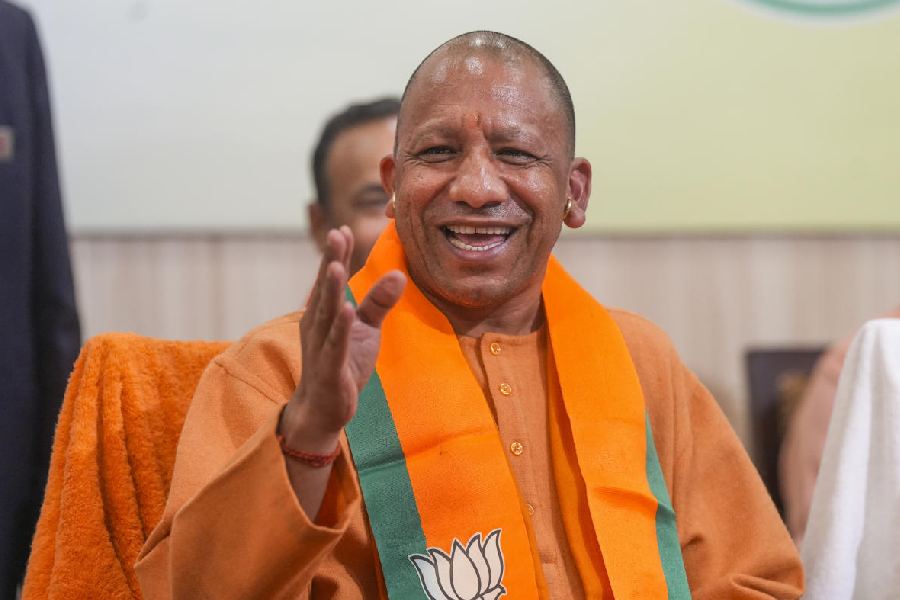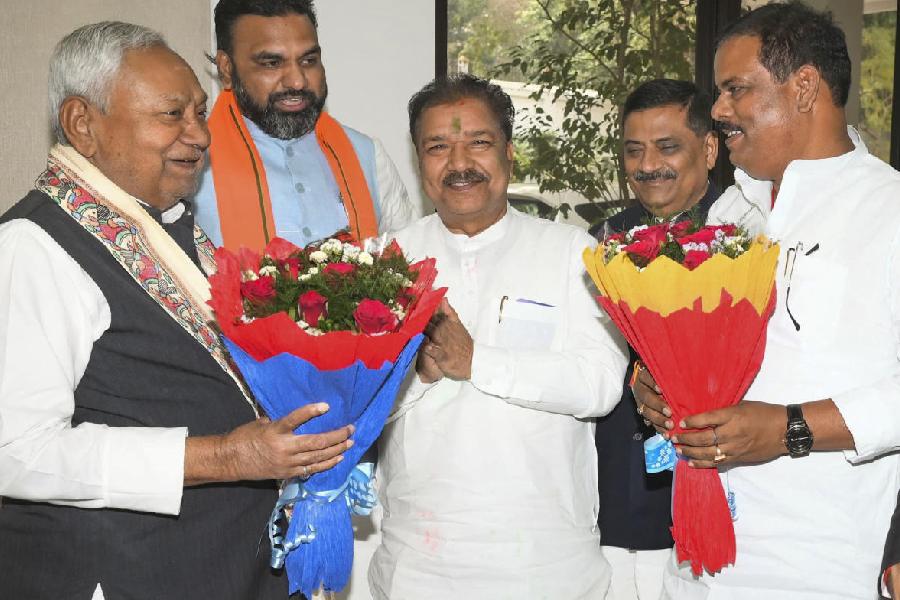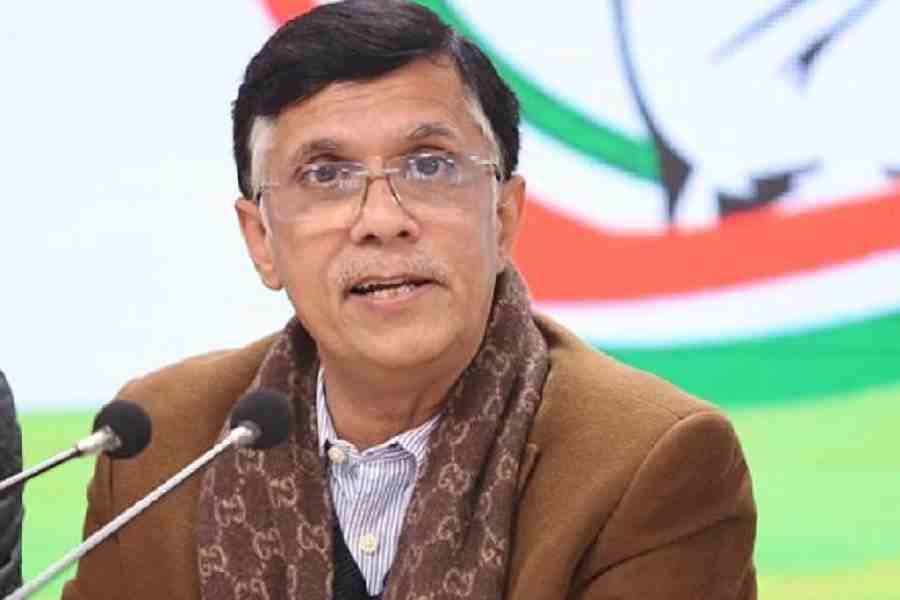Jharkhand’s tribal voters have united to defeat the BJP’s divisive agenda, handing chief minister Hemant Soren an unprecedented second straight term and nudging his alliance towards a possible two-thirds majority.
By late evening, Soren’s alliance had won or was leading from 56 of the 81 Assembly seats. The JMM had won 31 and led from 3; ally Congress had won 15 and led from 1, while the RJD had won 4 and the CPIML 2. The BJP had won 19 and led from 2 while allies Ajsu, LJP (Ram Vilas) and JDU had won 1 seat each.
The BJP had run a polarising campaign, pivoted on the bogey of Bangladeshi infiltration, with a battery of Union ministers and chief ministers led by Prime Minister Narendra Modi and home minister Amit Shah making “Bangladeshi ghuspetiya” and corruption their central narrative.
But it was Soren’s Maiya Samman monthly cash dole of ₹1,000 to poor women that won the day.
The JMM has won 27 of the 28 seats reserved for the Scheduled Tribes, the results establishing Soren and his wife Kalpana as the leaders of all the tribal communities — Santhal, Munda, Ho and Bhumij — in the state.
“The JMM’s performance was buoyed by rural women’s response to its Mukhyamantri Maiya Samman Yojana. By making the cash transfer scheme the centre-piece of its welfare outreach, the JMM was able to build in every constituency a new catchment of voters whose identities lay beyond the traditional buckets of community or region,” political columnist Sudhir Pal said.
Sudhir added: “It helped arrest the development narrative that the BJP has successfully used elsewhere and blunted the allegations of corruption — especially in those 68 seats where more women voted than men. It also proves that people in the Santhal Pargana and Kolhan regions did not buy into the BJP’s narrative about Bangladeshi infiltration affecting tribal demography.”
Senior political columnist Ashok Verma said Soren had been able to use his January 31 arrest by the Enforcement Directorate in a money-laundering case to tap into tribal pride.
“The poll outcome signifies the deepening influence of the Sorens among the tribal communities, as they successfully mobilised tribal sentiments following Soren’s arrest,” Verma said.
“Soren also managed to project the BJP as unable to digest a tribal chief minister completing a full five-year term, and played the political vendetta card successfully.”
Soren told reporters in Ranchi: “I countered their narrative (that was based on) divisive politics. The BJP had its eyes only on the state’s resources. I reiterated before the electorate my welfare schemes. I saved the people from being misled by the BJP’s propaganda and divisive politics.”
Soren and Kalpana, who entered politics after her husband’s arrest in January, held nearly 200 rallies after the elections were announced.
In every election speech, the couple reminded people how the BJP had detained a “tribal son” and conspired against the Adivasis. They alleged that Soren was locked up because he had stood up for poor tribal people against big business. Soren also promised expanded reservations.
The couple brought up tenancy and land issues that had kicked up a storm during the last BJP government’s tenure in the state (2014-19). They underlined the BJP’s silence on the demand for a Sarna Dharma code under which tribal people can choose to be counted during the population census.
In 2019, the BJP had won four seats in Santhal Pargana but this time it has been restricted to one — Jarmundi, where its candidate defeated incumbent Congress MLA and cabinet minister Badal Patralekh.
In Kolhan, former JMM chief minister Champai Soren’s pre-poll defection to the BJP had less impact than expected. The NDA won just three seats — Jamshedpur East, Seraikela and Jamshedpur West — out of 14. In 2019, the party had drawn a blank in Kolhan.
Champai, a five-term MLA, retained Seraikela but his son Babulal lost from Ghatshila and his protégé Sonaram Bodra from Kharswan.











